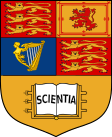
Civil engineering is a professional engineering discipline that deals with the design, construction, and maintenance of the physical and naturally built environment, including public works such as roads, bridges, canals, dams, airports, sewage systems, pipelines, structural components of buildings, and railways.
Structural engineers analyze, design, plan, and research structural components and structural systems to achieve design goals and ensure the safety and comfort of users or occupants. Their work takes account mainly of safety, technical, economic, and environmental concerns, but they may also consider aesthetic and social factors.
Sir Alec Westley Skempton was an English civil engineer internationally recognised, along with Karl Terzaghi, as one of the founding fathers of the engineering discipline of soil mechanics. He established the soil mechanics course at Imperial College London, where the Civil and Environmental Engineering Department's building was renamed after him in 2004, and was knighted in the 2000 New Year Honours for services to engineering. He was also a notable contributor on the history of British civil engineering.
The Military College of Engineering (MCE) is an engineering college located at Risalpur in Nowshera District, Khyber Pakhtunkhwa, Pakistan. It was established by Pakistan Army. MCE conducts courses for officers which includes civil engineering, Transportation engineering, Structural engineering, Geotechnical engineering, Construction management, Mining engineering, Disaster Emergency Management, Water Resources Engineering & Water resource management degree for officers, technical cadets and civil students. College also offers Combat & other Military education and training courses for authorized personnel.
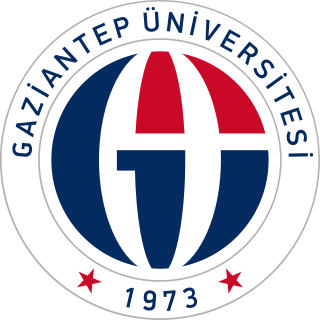
Gaziantep University is a public university in Gaziantep, Turkey. Gaziantep University has 10 faculties, containing a total of 22 academic departments, with a strong emphasis on scientific and technological research.
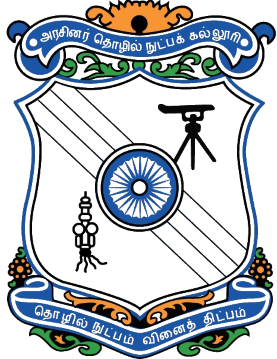
Government College of Technology, Coimbatore (GCT) is an autonomous state-funded engineering college located in Coimbatore, Tamil Nadu, India. It is affiliated to Anna University.

Robert James Mair, Baron Mair, is a geotechnical engineer and Emeritus Sir Kirby Laing Professor of Civil Engineering and director of research at the University of Cambridge. He is Head of the Cambridge Centre for Smart Infrastructure and Construction (CSIC). He was Master of Jesus College, Cambridge, from 2001 to 2011 and a fellow of St John's College, Cambridge, from 1998 to 2001. In 2014 he was elected a vice president of the Institution of Civil Engineers and on 1 November 2017 became the Institution's president for 2017–18, its 200th anniversary year. He was appointed an independent crossbencher in the House of Lords in 2015 and is currently a member of its Select Committee on Science and Technology.
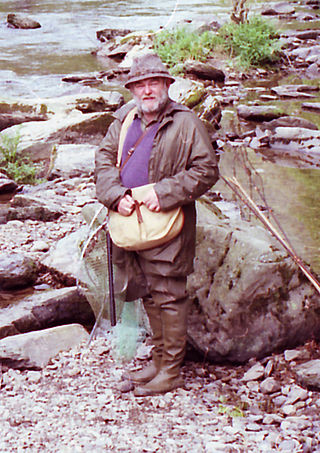
Peter Rolfe Vaughan ACGI, DIC, FREng, FICE, FCGI, MASCE, FGS, was Emeritus Professor of Ground Engineering in the Geotechnics department of Imperial College London.
David A. Nethercot OBE, FREng, FIStructE, FICE, FCGI is a British structural engineer.

John Boscawen Burland is an Emeritus Professor and Senior Research Investigator at the Department of Civil and Environmental Engineering of Imperial College London.
Alan Wilfred Bishop was a British geotechnical engineer and academic, working at Imperial College London.
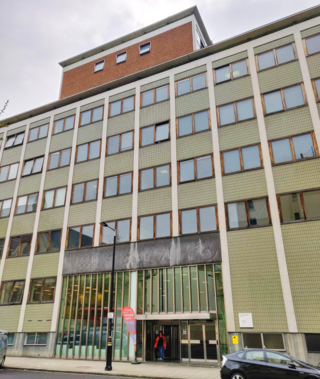
The Blackett Laboratory is part of the Imperial College Faculty of Natural Sciences and has housed the Department of Physics at Imperial College London since its completion in 1961. Named after experimental physicist Patrick Blackett who established a laboratory at the college, the building is located on the corner of Prince Consort Road and Queen's Gate, Kensington. The department ranks 11th on QS's 2018 world university rankings.
David Malcolm Potts is a professor of Analytical Soil Mechanics at Imperial College London and the head of the Geotechnics Section at Imperial College. He has been a member of the academic staff at Imperial College since 1979, responsible for teaching the use of analytical methods in geomechanics and the design of slopes and earth retaining structures, both at undergraduate and postgraduate levels.
Kenneth Harry Roscoe (1914–1970) was a British civil engineer who made tremendous contributions to the plasticity theories of soil mechanics.

The International Society for Soil Mechanics and Geotechnical Engineering (ISSMGE) is an international professional association, presently based in London, representing engineers, academics and contractors involved in geotechnical engineering. It is a federation of 90 member societies representing 91 countries around the world, which together give it a total of some 21,000 individual members. There are also 43 corporate associates from industry. The current ISSMGE President is Dr Marc Ballouz.
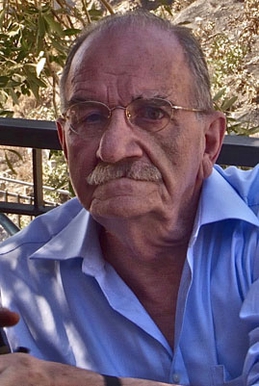
Nicholas Neocles Ambraseys FICE FREng was a Greek engineering seismologist. He was emeritus professor of engineering seismology and senior research fellow at Imperial College London. For many years Ambraseys was considered the leading figure and an authority in earthquake engineering and seismology in Europe.

The Department of Mechanical Engineering is responsible for teaching and research in mechanical engineering at Imperial College London, occupying the City & Guilds Building at the South Kensington campus. The department has around 45 faculty members, 600 undergraduates, and 250 postgraduate students. The department ranks 8th in the QS World University Rankings's 2018 table.
Bassam Izzuddin is an author, developer and professor of computational structural mechanics at the Department of Civil and Environmental Engineering at the Imperial College London where he is coordinator of three courses at advanced undergraduate and masters level. He is the founder and developer of ADAPTIC, an adaptive static and dynamic structural analysis program which has been developed to provide an efficient tool for the nonlinear analysis of steel and composite frames, slabs, shells and integrated structures. In 2016, he won the IStructE award for the best research paper in structural mechanics.

The School of Engineering, Trinity College Dublin is the oldest engineering school in Ireland and one of the oldest in the world. It provides undergraduate, taught postgraduate and research degrees in engineering. It is the highest-ranked engineering school in Ireland by QS Rankings and by Times World University Rankings.
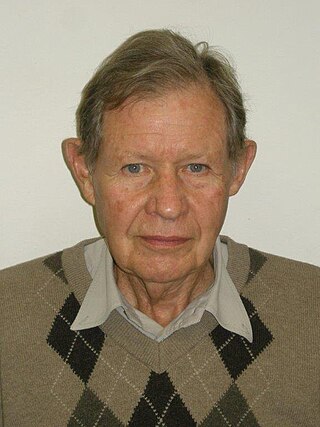
Geoffrey Eustace Blight was a professor in the School of Civil Engineering at the University of Witwatersrand (Wits), serving twice as head of department.















